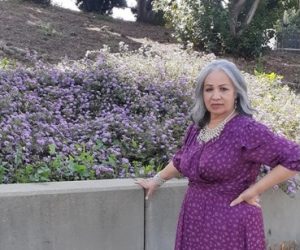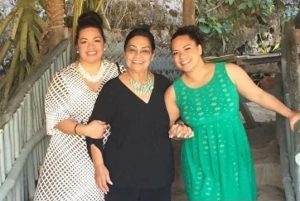When I was a boy, my mother, a native of The Kingdom of Tonga, would share with me some fascinating folklore, catchy nursery rhymes, and challenging Tongan vocabulary.
Some of the first Tongan words I learned were mouse (kumaa), bird (manupuna), and octopus (feke).
One night, I asked my mother how to say ‘tiger,’ my favorite animal at the time, in Tongan.
She replied that a word for it doesn’t exist because tigers don’t exist in Tonga.
So we just say its transliteration – “taika.”
Such is the case with most animals and words introduced to Tonga after Christianity and Western culture and civilization made their way to The Friendly Islands.
And while it is a testament to the history of preserving the Tongan language, it also tells a more in-depth story.
Menopause in Tonga
The Kingdom of Tonga is a south-pacific Polynesian island and archipelago situated about 1,500 miles northwest of New Zealand.
It consists of 169 islands, divided by three central districts: Tongatapu, Ha’apai, and Vava’u.
Although it’s only about 278 square miles, Tonga possesses a culture rich with history, culture, and tradition unlike any place on earth.
My early childhood was made wondrous with illustrious stories of early Tongans navigating the stars and gods pulling islands out of the Pacific Ocean.
My mother was born in a coastal village in Vava’u, Tonga, called Ha’alaufuli.
She completed high school in Nuku’alofa, Tonga, where she was granted a full-ride scholarship to Brigham Young University in Hawaii.
She left Tonga in 1980, when she was 21, but has always remained connected to the island through one of her 11 siblings.
When I first mentioned that I’d like to know more about my mother’s menopause experience, she struggled to remember a specific word in Tongan for it.
I skimmed my dictionaries and vocabulary lessons and found nothing.
It wasn’t until I came across an archived New Zealan-based radio broadcast in Tongan that I was able to find a word – or words – that explain what menopause is.
ko e hili e taimi oku fanau ai ha fefine, which translates to “the time after a woman becomes fertile.”
This means a word for ‘menopause’ does not exist in the Tongan Language.
According to this radio broadcast, most Tongan women go through menopause between the ages of 45 and 55 and experience hot flashes, cramps, anxiety, depression, or even none at all.
The broadcast also heeds the listener that Tongan women may become loto ite’ita which means irritable but fails to mention any remedy for Tongan women who feel these symptoms.
Aside from this audio snippet recorded in 2008, there are still scarce resources for Tongans who would like to know more about menopause, how it affects Tongan women, and how Tongan women could cope with such an experience.
After these findings, I spoke with three Tongan women close to me about menopause in Tonga: Jacinta Fa Drake (my mother), 61, Henilieta Afeaki, 80 Lupe Taumoepenu, who is 49.
While each experience was different from the next, there was one common idea about why menopause and the overall reproductive health of Tongan women are often overlooked: it’s tapu.
Tapu
The English word ‘taboo’ actually derives from the Tongan word tapu, which translates to forbidden, but can also mean sacred, consecrated, and holy.
In this context, tapu means something “we just don’t talk about” in Tonga, according to my mother.
She recalled her early teens when she got her first menstrual cycle, which Tongans call puke fakamahina, or “monthly sickness.”
She remembers feeling terrible physically, but even with five sisters and a mother, she felt it was too taboo to bring it up or talk about it with them.
Once she went to school and spoke with other girls about her menstrual cycle, she dealt with it – albeit alone.
When my mother emigrated to the United States, she attended a Tongan-speaking branch of The Church of Jesus Christ of Latter-Day Saints (or Mormons) in Salt Lake City, Utah.
The church is prevalent in Tonga, where about 65% of the population are Mormon.
For Mormon Tongans seeking a life in the United States, the church acts as a social hub for meetings, gatherings, and traditional Tongan dances and parties.
Each Sunday, my mother would preside over what the church calls the “Relief Society” hour, a women’s-only Sunday School class.
Here, women can discuss church teachings and daily life, but still, topics deemed tapu, such as menstrual cycles and menopause, hardly make their way into the curriculum.
My mother’s first time speaking to another Tongan about menopause came when I asked her about it.
“In Tonga, there is a faka’apa’apa (respect) where you don’t really mention any of that around the men. You have to consider your fathers and brothers.”
My mother recalls going through menopause feeling different physically but doesn’t remember her experience being too painful.
“It was like I woke up one day and said, ‘Oh, this is happening,’ and it just came and went. Occasionally, I’d feel puke (or sick), but I think I experienced it differently than most. I handled it pretty well.”
Her 80-year-old aunt, Henilieta Afeaki (or Henrietta), is a Tongan native who emigrated to the United States before returning to Tonga in 1978. She recalls feeling indescribable pain:
“I had no idea what happened, but in a few seconds, it was gone, and I was back to normal. We came back home [from church], and I was ok the rest of the day. The next day I felt it again, that feeling like my flesh was burning and I was so hot. Thank goodness for fans!”
“Then my mood changed; I was irritable, easy to cry over everything, screaming and yelling. I was miserable. I didn’t want my husband to touch me. I didn’t like sex; it hurt. Indescribable, the pain, the burning. I don’t even remember how I found out it was menopause.”
Lupe Taumoepenu, a 49-year-old healthcare professional, living in Tonga’s capital, Nuku’alofa, told me her experience wasn’t difficult simply because she knew what to expect.
“I think because I have an education from outside of Tonga, I was able to experience that menopause is normal and it’s okay.”
“My symptoms were pretty bad. I was afu’ia (hot flashes), but I knew how to treat myself, and that made it easier for it to happen to me.”
It’s true. Experts agree that the more women feel comfortable talking about menopause – and do – with their family, the less stress and anxiety they’ll have through their experience.
These conversations can have an impactful difference physically and emotionally.
But in a culture where it’s taboo for women to gain that sort of comfort, it is easier said than done.
A 1997 study carried out in Tongoleleka, a village on the mainland of Tongatapu, asked correspondents to share their knowledge of contraceptive use among Tongan women.
The study found that not only 19% of Tongan men knew what contraceptives were, but nearly all men who participated in the study felt like it was the woman’s responsibility to know about it.
This study by the Pacific Health Dialogue panned the Tongan Monarchy Government for introducing anti-natalist family planning policies that focus on women so that men think “it is the rightful domain of women.”
Henilieta acknowledges this attitude that men have for women speaking openly about their experiences and refers to it as veitapui.
Veitapui is the specific respect women must have around their brothers, fathers, and male family members regarding their language, mannerisms, and how they dress and appear when their male family members are present.
Since menopause happens in the home, women who cannot talk about it are often left confused, anxious, and depressed while their symptoms can be exacerbated.

My mother, Jacinta Fa Drake via Facebook
How Tongan Women Treat Menopause
For women such as my mother Jacinta, they are fortunate enough to access standard menopausal and hormonal medicine here in the United States.
In Henilieta’s account, she recalled using simple Tongan treatments for her symptoms.
These treatments include vai haka, a boiled mixture of various leaves that treat morning sickness in women, vai noni, a juice made from the fruits of the Morinda citrifolia, or Indian Mulberry tree hot flashes.
Before the influx of Western medicine in Tonga, most Tongans turned to ethnomedicinal herbs for various illnesses and symptoms.
One notable root that has shown promise is kava, a root indigenous to Tonga with anxiolytic properties. Kava, or Ava Pepper, has been directly linked to relieving symptoms of menopause, including chronic pain, anxiety, depression, and hot flashes.
It is grounded up finely, sieved with water, and can be consumed directly for immediate relief, and can be a natural remedy for menopause.
The good is that Tonga is abundant with kava, as it is used traditionally for ceremonies and gatherings.
The bad: it is considered tapu for women to drink it.
Kava ceremonies include funerals, weddings, and most-notably the taumafa kava, which is a royal ceremony recognizing the King’s reigning sovereignty over the Kingdom.
Tonga and diaspora have also developed Kava clubs, or faikava, a recurring club where men sit around a kava bowl, partake in the root, and sing Tongan hymns.
The women’s role in these kava ceremonies is called a tou’a, or server of kava.
The women must also not be related to anyone attending the faikava and are usually single and unmarried to uphold veitapui.
And although kava drinking is becoming popular among Tongan women in New Zealand and the United States, native Tongan women still realize a stigma from publicly and medicinally partaking in the root.
As rich and beautiful as the Tongan culture is, certain traditions and taboos prevent women from learning and talking about menopause. At the same time, it creates a stigmatizing environment for women such as Henilieta to treat it.
What My Mother, My Aunt, and I Want Tongans to Know About Menopause
From my account, a simple question about menopause led me to realize that Tongan women often suffer in silence.
Sometimes, we ask Tongan women to speak up and vocalize their pain, anxieties, and concerns, not knowing there is a veil of cultural taboos they cannot bypass simply.
My mother, a sweet and loving Tongan soul, has always created a haven for my three siblings and me to be open about our feelings, especially as it pertains to our health, so she can know how to help up.
Tongan mothers who care for their children never stopped to consider what was disrespectful or tapu.
Our Tongan men need to grant our Tongan women equal access to us.
We need to create a space for our mothers, sisters, and wives to speak openly about their physical and mental health.
As a Tongan son, I do not believe my mother’s natural experiences are taboo.
They are valid, normal, and beautiful, and her well-being lies outside the parameters of upholding cultural norms.
I encourage all Tongan men to acknowledge barriers in Tongan culture that can silence our women.
My mother, Jacinta, wants other Tongan women to know that menopause needs to be talked about amongst each other.
Whether it’s a conversation you have with your children at young ages, your significant other in the perimenopausal stages, or at social hubs, including church and school.
Our conversation served as a learning journey for my mother, who started conversations with female family members about menopausal treatments.
“It’s tapu, but it does help when we can talk about it,” she encourages.

Henilieta Afeaki, 80, and her two daughters via Facebook
Henilieta agrees with one caveat: “I genuinely feel Tongan women need to know what menopause is, but most importantly Tongan men need to be informed too.
“I have lived here in Tonga for many years…since 1978.”
“It is never talked about, ever! It’s hard because of the veitapui. In other words, no one can ever have a discussion in the media about it. There is no Tongan word for menopause!”







